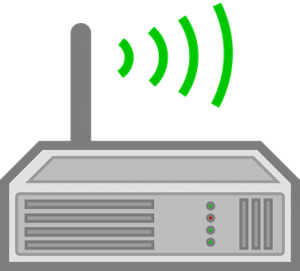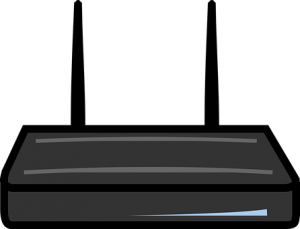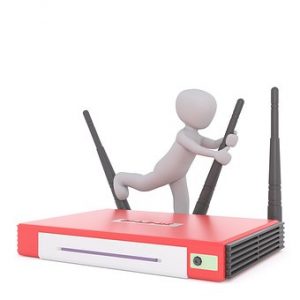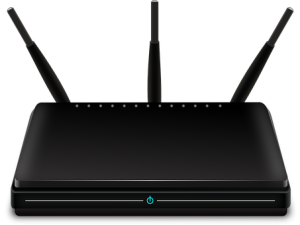Router Not Connecting to Internet
The router is a significant device responsible for fetching internet signals for your space, whether it is home or workplace. However, routers are prone to problems, just like any other gadget. The router not connecting to the internet problem represents a few frequent problems users can encounter with routers. When you have an in-depth knowledge of the reasons and fixes for router issues, you’ll be better equipped to diagnose your equipment, restore a steady connection, and guarantee a seamless online experience.
 In any troubleshooting process, the first step is understanding the problem. If you’re experiencing an issue where your router is not connecting to the internet, it’s important to identify the possible causes. One common cause can be a problem with your internet service provider (ISP). often, the problem is not on your side but with the ISP providing the service.
In any troubleshooting process, the first step is understanding the problem. If you’re experiencing an issue where your router is not connecting to the internet, it’s important to identify the possible causes. One common cause can be a problem with your internet service provider (ISP). often, the problem is not on your side but with the ISP providing the service.
Another issue can be the WiFi not connecting to internet. This usually involves problems with your WiFi-enabled devices being unable to detect or connect to your router. This can occur due to interference from other wireless devices, the distance between your device and router, or the device’s wireless settings.
The third scenario is where the router is not getting internet from the modem. The modem is the device that translates the internet signal from your ISP into a form that your home network can use. If there’s an issue between the modem and the router, your router cannot broadcast the internet signal to your devices.
Understanding these issues, namely, the router not connecting to internet, WiFi not connecting to internet, and the router not getting internet from the modem, is crucial for troubleshooting. In further sections, we will discuss these reasons and solutions to fix the error.
Recognizing the signs of an internet connection issue can help you solve the problem more quickly. Here are some common symptoms:
- WiFi Won’t Connect: WiFi Won’t Connect problem is a clear indication that there’s an issue with your internet connection. If your devices cannot connect to your WiFi network, there’s likely a problem with your router or its settings.
- WiFi Connected But No Internet: Sometimes, your devices might connect to the router but can’t access the Internet. WiFi Connected but no Internet can be caused by issues with your device’s ISP, modem, or DNS settings.
Why is Router Not Connecting to the Internet?
Any router user might wonder why the router is not connecting to the internet. Well, to answer this question, you should read the following reasons for WiFi not connecting to internet and understand the best possible fixes to rectify this error. Let us know more about the best practices to fix the WiFi not connecting to internet problem here:-
- ISP Outage or Service Disruption: A connection issue with your Internet Service Provider (ISP) is one potential cause of your router not connecting to the internet. A short outage has badly affected the internet services in your location. Moreover, many technical inconsistencies, bad climate, and incomplete maintenance can cause the WiFi not showing up on your device. The correct method to resolve such an error is to have a word with your internet service provider.
- Wrong Router Configurations: Wrong configurations can create your router not connecting to the internet error. These could be settings related to your ISP, DNS, or network settings that might be incorrect or outdated.

- Defective wires or Hardware: Physical damage to your router, modem, or the cables connecting them can also cause issues. If your router is connected but no internet, check your hardware to ensure everything is in good condition.
- Wireless Intervention: Interference from other wireless devices can dislocate your WiFi signal, causing problems like WiFi not connecting to the internet or your device indicating WiFi says no internet.
- Outdated Firmware: Outdated router firmware can cause connectivity issues. If you’re having trouble where WiFi is not connecting, or WiFi has no internet access, it’s worth checking if there’s an update available for your router’s firmware.
- Router or Modem Needs Resetting: Like any other electronic device, routers, and modems can sometimes experience minor glitches that a simple reset can resolve.
- Overcrowded Network: If too many devices are connected to your router simultaneously, it could be causing congestion on your network. This could explain why your WiFi is not connecting to the internet.
- Distance and Obstacles: The physical distance between your router and the device you’re trying to connect can impact your WiFi connection. Similarly, obstacles like walls or furniture can interfere with the signal. If your wireless connection has no internet, follow the best practices explained in the next segment.
- Malware or Viruses: Malicious software can interfere with your router’s ability to connect to the internet. If your router is connected without an internet signal, you must resolve this issue ASAP.
Remember, the cause of a router not connecting to the internet can vary greatly, so it’s essential to look at all possible factors when troubleshooting your connection issues. From WiFi not connecting to internet, to a wireless connection but no internet, these problems can be frustrating but are usually solvable with some investigation. You’re one step closer to resolving your router connectivity issues by identifying these potential issues. Remember, there can be several reasons you experience a scenario where your router is not connecting to the internet or your WiFi says no internet.
How to Fix Router Not Connecting to Internet:
Internet connectivity issues can hinder your work, but you can solve most of them with basic troubleshooting steps. Here are some potential solutions to common problems:
- Restart the router and modem: Often, a basic restart can fix many connectivity issues, including the WiFi connected, but no internet problem.
- Check your network settings: Incorrect network settings can cause your device to connect to WiFi but not have internet access. Reconfigure Network settings to resolve this issue, or you can also reset it to get back to default settings.

- Check your ISP: Sometimes, your device can connect to your router (thus showing WiFi connected) without internet access because of issues with your Internet Service Provider (ISP).
- Try another device: If one device has issues connecting, try another. If the other device can connect, you may have to troubleshoot the original device specifically.
- Update your router’s firmware: Firmware updates can improve performance and resolve many issues, including the WiFi connected no internet access problem.
- Reset your router to factory settings: If updating the firmware doesn’t help, a factory reset may resolve the issue. Remember, you’ll need to reconfigure your settings after a factory reset.
- Relocate your Router: Ensure it is in an open area where its signal can reach your devices without being obstructed.
- Reduce network congestion: If your Router keeps dropping internet, it might be due to too many devices connected simultaneously. Disconnecting unused devices can help.
- Check your cables: Ensure all the cables connecting your router and modem are plugged in securely.
By applying these solutions, you can solve many common connectivity issues, whether you’re dealing with router keeps dropping internet or router that is connected but no Internet.
Conclusion:
 Dealing with connectivity issues like WiFi connected but no internet or router keeps dropping internet can be a challenge. However, users can resolve these issues with the right information and troubleshooting strategies.
Dealing with connectivity issues like WiFi connected but no internet or router keeps dropping internet can be a challenge. However, users can resolve these issues with the right information and troubleshooting strategies.
Remember, it’s crucial to understand the root cause of the issue before you can effectively fix it. The problem could be anywhere from your ISP to your specific device or even the physical location of your router.
Furthermore, always ensure that your router’s firmware is up-to-date and that your network is secure. Keeping these elements in check will help maintain a strong and stable connection. This blog has focused on the internet not connecting problems & troubleshooting them as well. In addition to that, we have also provided more information on various router brands on our router support page. To know more about Router setup & troubleshooting router problems, visit the Router Support Page.

